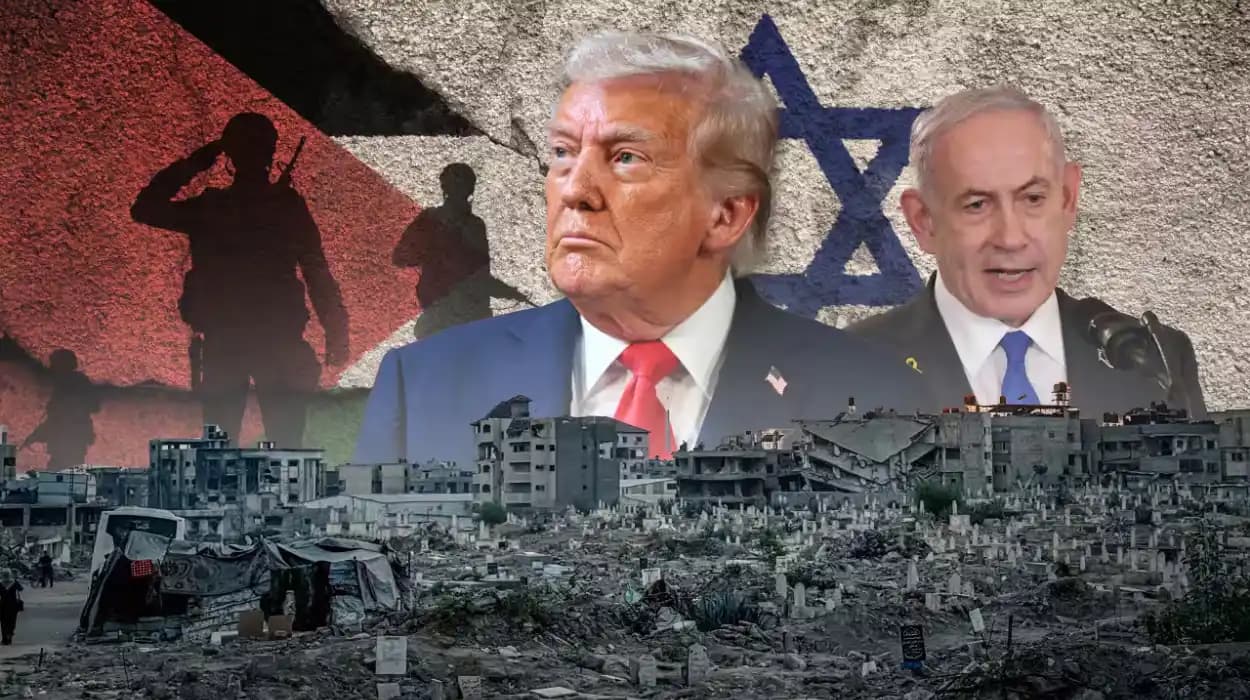Iraq's Ministry of Foreign Affairs reaffirmed Baghdad’s support
for all efforts aimed at ending the conflict, alleviating civilian suffering,
and creating conditions for stable and lasting peace in Gaza. The ministry
emphasised the importance of immediate ceasefire and the reconstruction of
Gaza, while insisting on preventing any actions that would result in the
annexation of Palestinian lands. Iraq also emphasised the need to ensure
humanitarian assistance is delivered without obstruction and opposed forced
displacement of residents in Gaza. The ministry’s message reflected Iraq’s
concern over broader implications for Palestinian territories, rejecting
Israeli annexation plans for the West Bank.
Overview of Trump’s Gaza peace initiative
President Donald Trump, alongside Israeli Prime Minister Benjamin Netanyahu, announced a comprehensive 20-point peace plan aimed at ending over two years of conflict in Gaza. The plan includes an immediate ceasefire, phased Israeli military withdrawal, release of hostages held by Hamas, humanitarian aid delivery, and reconstruction of Gaza. The proposal also outlines steps for the disarmament of Hamas and the establishment of a technocratic Palestinian governance structure—though ultimate Palestinian statehood remains a future possibility. Trump described the plan as
“the closest we've ever come to real peace,”
while Netanyahu praised it for
achieving Israel’s war aims.
Regional and international reactions to the peace plan
Iraq is among a wider group of Arab and Muslim-majority
countries endorsing the US initiative. Nations including Saudi Arabia, Qatar,
Jordan, the UAE, Egypt, and Pakistan issued a joint statement expressing
readiness to cooperate positively to ensure the plan's implementation for
peace, security, and stability. Nechirvan Barzani, President of the Kurdistan
Region of Iraq, publicly praised Trump’s leadership in the peace effort, urging
all parties to engage in constructive dialogue and compromise. The United
Nations Secretary-General António Guterres welcomed the initiative, calling on
all factions to commit to the plan for a permanent ceasefire and humanitarian
relief. The UN's human rights chief and WHO Director-General also highlighted
the potential to end hostilities and deliver aid.
Hamas and Gaza response status
Hamas is currently studying Trump’s plan “responsibly,” with
ongoing negotiations involving mediators from Qatar, Turkey, and Egypt. Hamas’s
leadership is deliberating internally and coordinating with other Palestinian
factions. Several neighbouring states view Hamas’s openness to dialogue as a
hopeful sign toward an immediate ceasefire.
Key elements of the peace plan detailed
The plan’s major components include immediate ceasefire,
phased withdrawal of Israeli forces from Gaza, the timely return of Israeli
hostages, release of Palestinian prisoners including women and children,
amnesty for Hamas members who renounce violence, safe passage for those leaving
Gaza, reconstruction of infrastructure such as water and hospitals,
humanitarian aid supervised by UN agencies, and reopening the Rafah crossing in
accordance with humanitarian frameworks.
Context of the conflict and humanitarian dimension
The plan emerges after sustained Israeli military operations
resulting in extensive Palestinian civilian casualties, with Gaza facing
critical shortages in food, medical supplies, and basic services. The proposal
emphasises urgent humanitarian relief and infrastructure rebuilding to reverse
the enclave’s devastation.
Iraq’s supportive stance adds to growing international momentum behind the Gaza peace initiative by US President Donald Trump. Regional governments, international organisations, and Palestinian actors indicate cautious optimism for a viable ceasefire and durable peace. Iraq continues to call for concrete actions to end conflict, restore humanitarian conditions, and safeguard Palestinian rights, contributing to the broader quest for peace and stability in the Middle East.
